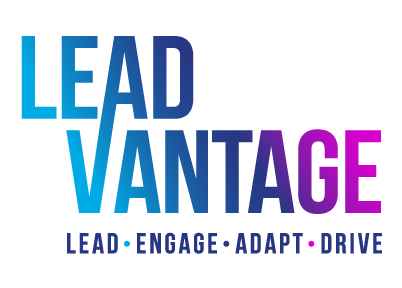In the dynamic landscape of leadership, where challenges abound, coaching emerges as a pivotal tool for empowering leaders to navigate complexity and drive transformative change. Marcia Reynolds in her book “Coach the Person, Not the Problem”, speaks of the profound role of coaching, offering insights that underscore the significance of reflective inquiry and psychological safety in cultivating effective leadership.
We understand that organizations may have formal mentoring or coaching systems in place. As leaders, it’s essential to view every interaction as a chance to provide guidance and support. Here are key takeaways from her book that we, as coaches, can apply when guiding both emerging and seasoned leaders in our organizations.

Catalyst for Leadership Growth:
“Coaching should be a process of inquiry, not a series of questions.”
Reynolds contends that coaching transcends a mere Q&A session; it’s a transformative process of inquiry. Through reflective questioning, coachees are prompted to engage in critical thinking, enabling them to discern gaps in logic, evaluate beliefs, and clarify fears impacting their choices. Solutions, Reynolds asserts, emerge when coachees reshape and expand their thoughts.
Leadership in Turbulent Times:
“When leaders are overwhelmed, stressed, and facing challenges, coaching reminds them of their purpose, visions, and power to move forward.”
In the tumultuous realm of leadership, coaching serves as a grounding force. Reynolds sees coaches as essential thinking partners, guiding leaders to leverage their creativity and resources to overcome obstacles, solve problems, and maintain focus on their purpose and vision.
Transformational Leadership Coaching:
“Coaching the leader, not just addressing the problem, using reflective inquiry is the cornerstone of transformational coaching.”
Reynolds draws a crucial distinction between transactional and transformational coaching for leaders. While transactional coaching deals with operational problem-solving, transformational coaching focuses on the leader’s development, expanding perspectives, and fostering enduring changes in beliefs and behaviours.
Focus, Exploration, and Decision-Making:
“When leaders express uncertainty, explore whether they question a solution that comes to mind.”
Reynolds advocates for exploring potential solutions when leaders claim uncertainty. Leaders often possess solutions but may be hesitant. Coaches can encourage coachees to draw upon their wealth of experiences, fostering a confident decision-making process.
Creating a Safe Haven for Leadership Growth:
“The coach’s responsibility is to create the conditions for leaders to feel safe expressing their thoughts.”
In the realm of leadership, psychological safety is paramount. Coaches must create an environment where coachees feel secure expressing thoughts and feelings, fostering open dialogue and trust—a cornerstone for effective leadership.
Leadership’s Unique Journey:
“Never lose sight that the leadership journey is theirs to take. Coaches are their thinking partners.”
Reynolds emphasizes that coaches for leaders are thinking partners, not directors. The leadership journey belongs to the individual leader, and coaches should refrain from imposing their opinions. By removing the word “I” from conversations, coaches maintain a strong connection with leaders.
Trust and Active Receiving:
“Trust is the foundation of effective coaching for leaders, involving genuine curiosity and belief in their potential.”
Trust is the bedrock of effective leadership coaching. Coaches need to be genuinely curious, believing in the leader’s potential. Active receiving involves not just listening but being aware of sensory reactions and mental activity, fostering a deeper connection crucial for leadership growth.
Conclusion: A New Leadership Perspective
“One’s destination is never a place but rather a new way of looking at leadership challenges.” – Adapted from Henry Miller
Marcia Reynolds’ teachings transcend coaching; they are a guide to transformative leadership. By embracing reflective inquiry, creating psychological safety, and trusting the unique leadership journey, coaches can unlock the full potential of coachees/leaders they guide, fostering enduring change and growth in the dynamic landscape of leadership.
At Lead Vantage we train new and upcoming leaders to build a coaching culture.
“This duo of training and coaching was a key part that allowed us to develop a roadmap to success. We saw a return on investment with our leaders putting these into action in their daily interactions. Their training and coaching facilitated behavioural and organizational changes, that increased buy-in from leadership, as well as involvement and investment in our people and firm overall.” Chief Operating Officer, Law Firm
Individualized coaching is a crucial part of the intentional leadership development program. With a focus on building stronger communication, leadership presence, and high-performing teams, coaching facilitates behavioural and organizational changes at all levels.
Lead Vantage’s coaching program ensures your training brings long-term transformational outcomes for both the individual leaders, and the organization as a whole.

Discover how we can help you develop your next generation of leaders through coaching. Visit https://leadvantage.ca/book-a-call/




